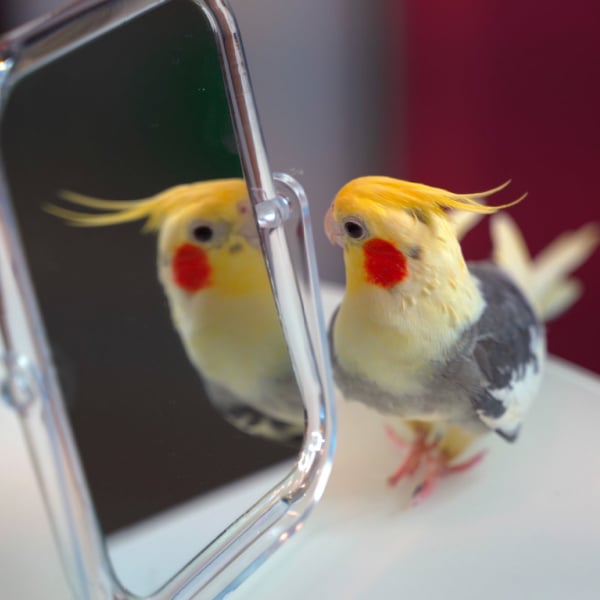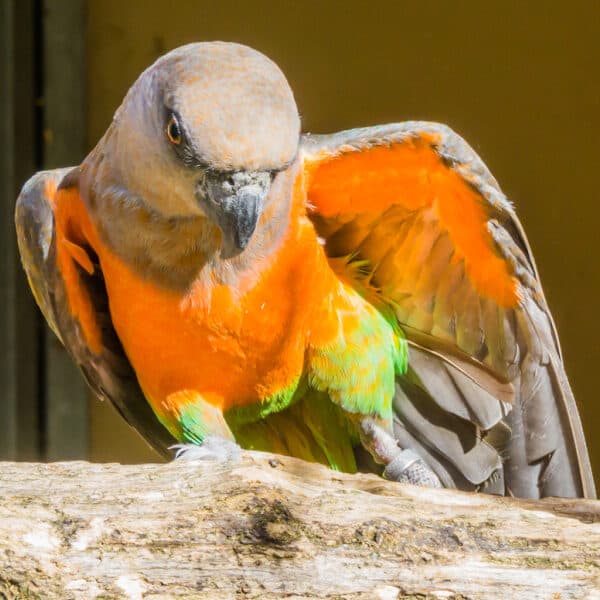Last Updated on by Mitch Rezman
Would you like your parrot to learn to talk or whistle, imitate sounds of any kind? If you haven’t been told yet, there is some bad news on that front: there is no guarantee that any bird of any species will ever learn to talk or make sounds. It just isn’t guaranteed.
If that is why you are adding a feathered companion to your home, then your motivations are wrong because even those parrots that do not speak add a lot to the lives of their owners —
when treated properly and respectfully, they add unconditional love, games, attention, a sense of companionship and well being, not to mention that fact that pets lower our blood pressure and help us live longer. But if all that isn’t enough for you and you just MUST have a talking parrot, provide a home to one that already talks and needs a loving home.
I bred cockatiels for some years and they are known to be rather talented in the talking department. In fact, when I pulled babies for hand feeding at week two or three, I began talking to them even more frequently than I had done while they were being fed by parents. Some of their parents talked to them as well. From those babies, a few spoke to me well before weaning, saying things like, “love” (the first steps of I Love You) and “”yum yum” (my term for good stuff), “hi”, “yes”, “tank you” (h doesn’t come easily to baby birds it seems but does come), and others. Yet, others who had been talked to by parents from day one, talked to by me and my mom, heard the other talking birds in the aviary, and talked to incessantly while being fed never spoke a word.
I saved my already talking babies for buyers who were my friends and I knew would further develop their abilities. If I had excess talking babies, a rare situation, they went to pre-qualified (yes, I qualified homes or you didn’t get a baby from me) homes on a first come, first served basis.
I did find one nearly certain way to ensure a bird did not ever talk. Give the baby a mirror and the chance of talking or even whistling tunes was cut down greatly. Why? The reason is that the bird wants a flock mate and prefers one that looks like himself or herself. Therefore, they become completely bonded to the birdie in the mirror. Once addicted to their reflection, any shiny surface will do — a reflective window, the toaster, the microwave front, a shiny bell — anything will do!
It’s a very difficult thing to break, the need for the birdie in the mirror but you can do it. First, add lots and lots of new toys, especially interactive ones. Then remove the mirror part of each day. Then remove it for good.
A few weeks back someone asked about their bird performing mating behavior on non-birdlike objects. I knew a cockatiel and a budgie, each of which had mirrors and were mirror-bonded. Both of them, in separate homes, would perform mating behavior on inanimate objects to satisfy the urge brought on by the mirror-bird. The cockatiel had a beloved golf ball that he loved — he REALLY REALLY loved, several times per day. The budgie chose a blue bead on a toy as his mate. Truth is often stranger than fiction, but these are both true. I also had a human bonded male sun conure spray my mother’s thumb once.
The best way to encourage talking in your parrots is to talk to them and avoid allowing mirror or shiny object bonding. Talk and talk and talk to them, using the words in content. When you wake up in the morning, say Good Morning. When you put them to bed at night say Good Night. When you ask them if they want a treat and they take it, say Thank You so they will learn to thank you for the treat. If you bird loves to ride in the car, say Go Go or Want to Come With Me? or something to clue the bird in and it may learn to say it wants to come before you offer.
Budgies are highly under rated as pet birds
A short true story about my first sun conure, Mango: She loved to ride in the car above nothing else. She didn’t talk well, but said a few words which began after age 3. Her “I want” was an expressive wing flutter. I was preparing for a job interview or some sort of business meeting and she noticed me getting ready. She began saying “hello” along with expressive wing flutters, clearly wanting to accompany me. It just wasn’t that sort of trip and she couldn’t go along. She continue letting me know she wanted to go and I continued to explain she just couldn’t go this time. When I picked up my keys to leave, she knew she wasn’t coming along. She reached up and grabbed her beak in her foot, her “I’m sorry” pose. She said as clearly as I had ever heard her say “Gooooodbye”. I promised her a ride in the car as soon as I returned which I did.
Yet, I had another sun conure that spoke over 100 words. She just was more talented than SunDance. Go figure. Both were from great bloodlines, both were smart as little Einsteins but one talked much better than the other and sun conures are not known for speaking ability.
If you remove the mirror and overly-shiny objects, talk to your bird in content all the time, there still is simply no guarantee your bird, even an African Grey, known for their talking talents, will ever say a word. But if you can’t love a bird unless it speaks, perhaps you should consider not having a bird in your home. Except your bird to be fun, entertaining, sometimes grumpy, sometimes want to be alone, at times annoy you with too much attention, but do not make demands your parrot can’t meet. He or she may talk well, or may never speak a word or whistle a tune. Love your bird for what and who it is and you’ll have a friend for life.
Written by the Windy City Parrot Content Team
Author Profile

Latest entries
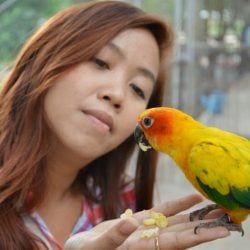 Bird BehaviorJune 6, 2025How Do I Keep My Parrot From Dumping His Food Every Day?
Bird BehaviorJune 6, 2025How Do I Keep My Parrot From Dumping His Food Every Day?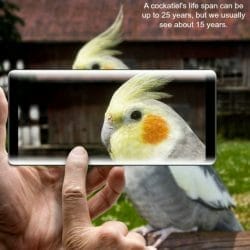 Birds & LightingMay 16, 2025I Am Seeking Clarity About Lighting for My Birds Cage
Birds & LightingMay 16, 2025I Am Seeking Clarity About Lighting for My Birds Cage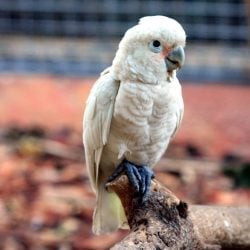 Bird RescueApril 29, 2025How Do We Re-Home a 17 yr Goffin Cockatoo?
Bird RescueApril 29, 2025How Do We Re-Home a 17 yr Goffin Cockatoo?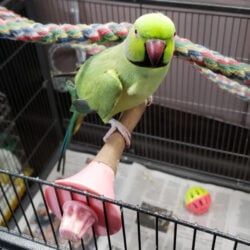 The Traveling BirdApril 17, 2025For Flying Should My Pet Bird Be in the Cabin or the Cargo Hold?
The Traveling BirdApril 17, 2025For Flying Should My Pet Bird Be in the Cabin or the Cargo Hold?
